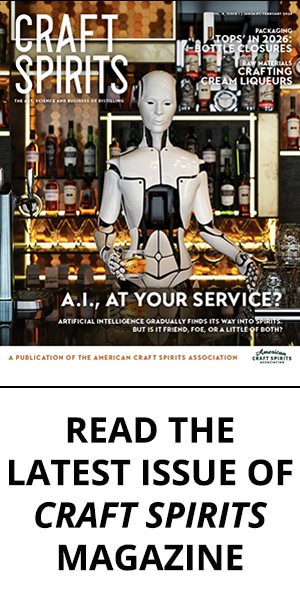The U.S. Alcohol and Tobacco Tax and Trade Bureau (TTB) published a notice of proposed rulemaking last week that would add American single malt whiskey to the standards of identity for distilled spirits. The proposal follows years of petitions and comments from distillers, the American Single Malt Whiskey Commission (ASMWC) and the American Craft Spirits Association, among others.
“While we’re not yet to the finish line, the [proposed rulemaking] marks a major milestone we’ve been working toward since coming together as the ASMWC in 2016,” said Steve Hawley of Westland Distillery in Seattle, one of the commission’s founders and its president. “We’re closer than ever to having a formal definition for American single malt, something that will benefit distillers and consumers alike, and signal to the world that this emerging category is worth celebrating.”
Gareth Moore, the CEO of Virginia Distillery Co. and ASMWC treasurer called the proposed rulemaking a “historic moment for the industry, as it has been decades since a new whisky category of this magnitude has been added to the Beverage Alcohol Manual. The American whiskey category was synonymous with bourbon just 15 years ago, but the resurgence of rye diversified that view. The American single malt category will further broaden the view of the American whiskey consumer and fuel innovation and premiumization across domestic products.”
In Notice No. 213, Proposed Addition of American Single Malt Whisky to the Standards of Identity for Distilled Spirits, published in the Federal Register on July 29, TTB proposed to amend the regulations in 27 CFR part 5 that set forth the standards of identity for distilled spirits to include “American single malt whisky” as a type of whiskey that is a distinctive product of the United States.
Under TTB’s proposal, to be labeled “American single malt whisky,” the product must be distilled entirely at one U.S. distillery, and must be mashed, distilled, aged in the United States. The product also must be sourced from a fermented mash of 100% malted barley, at a distillation proof of 160° or less, and stored in oak barrels not exceeding 700 liters. In addition, allowable coloring, flavoring, and blending materials would be permitted.
TTB invites comments on this proposal, including on whether the proposed amendment would have an adverse impact on owners of U.S. trademarks and current producers of malt whisky.


